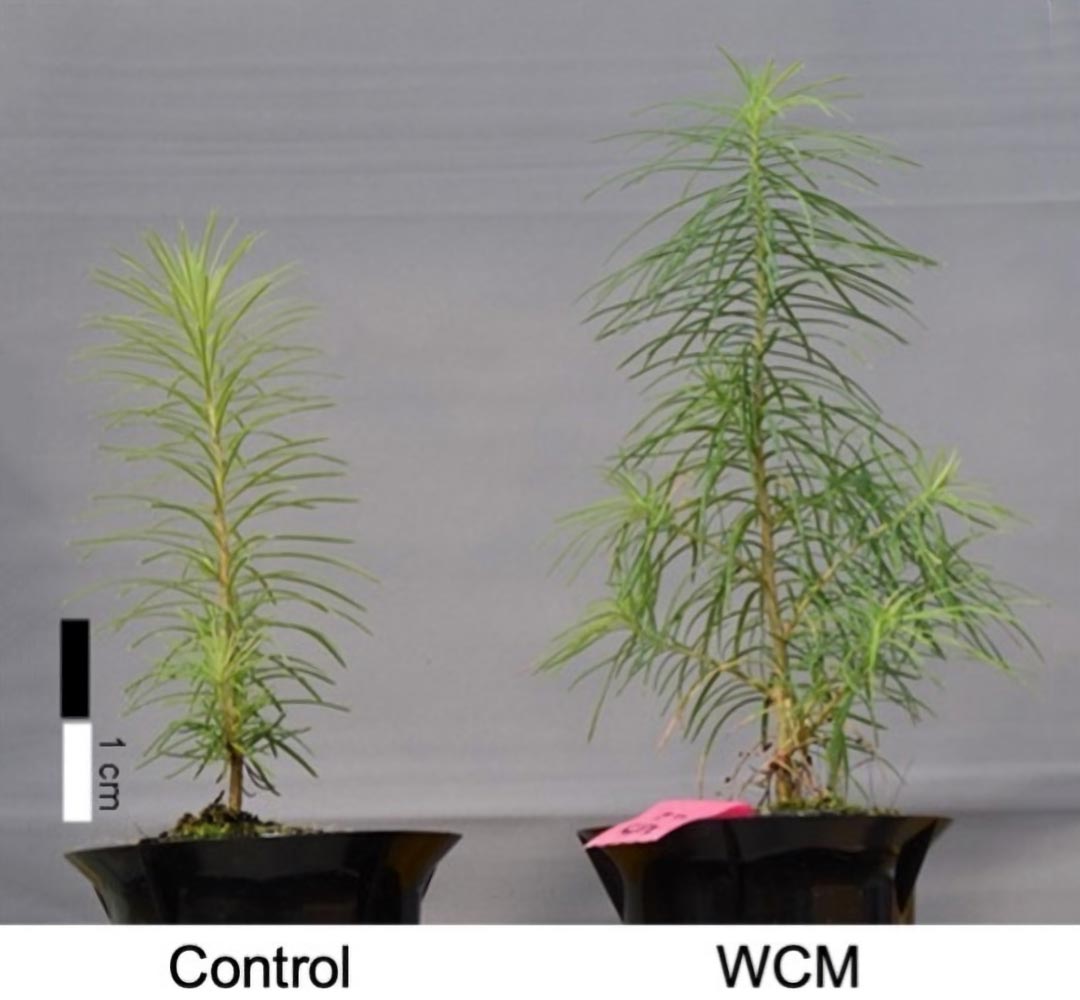Eu .上塗を施してあるプラスチック シート3+ 紫外線を赤色光に変換するフィルムは、植物の成長を早め、樹木を植えることができました。
科学者はユウロピウムベースの薄膜コーティングを開発し、それが植物や樹木の成長を加速することを証明しました. この技術は、植物の生産速度を向上させることができ、世界的な食糧供給問題の解決に役立つ可能性を秘めています。 からの研究者の学際的なチームでした。[{” attribute=””>Hokkaido University’s Engineering and Agriculture departments and the Institute for Chemical Reaction Design and Discovery (WPI-ICReDD).
Plants use a process called photosynthesis to transform visible light into energy. Sunlight emits ultraviolet (UV) radiation in addition to visible light. In this work, scientists used a wavelength-converting material (WCM) that can change UV radiation into red light to provide plants with more visible light to use in photosynthesis.
Scientists developed a WCM based on a europium complex and made a thin-film coating that can be applied to commercially available plastic sheets. Researchers not only demonstrated that the film converts UV light to red light, but they also showed that the film does not block any of the beneficial visible light from the sun. The film was then tested by comparing plant growth using sheets with and without the WCM coating.
Trials were performed for both Swiss chard, a vegetal plant, and Japanese larch trees. In summer, when days are long and sun irradiation is strong, no significant difference was observed for Swiss chard when using the WCM films. In winter, however, when days are shorter and sunlight is weaker, Swiss chard plants grown using the WCM films showed 1.2 times greater plant height and 1.4 times greater biomass after 63 days. Investigators attributed this accelerated growth to the increased supply of red light provided by the WCM films.

(a) Schematic of WCM film converting UV light to red light (left) and molecular structure of film components (right). (b) Photos of plastic sheets with and without WCM coating. (c) Solar spectrum showing wavelengths absorbed and emitted by the WCM film. Credit: Sunao Shoji et al. Scientific Reports, October 26, 2022
Trials involving Japanese larch trees also showed accelerated growth. Seedlings showed a higher relative growth rate in the initial 4 months of growth, resulting in a stem diameter 1.2-fold larger and total biomass 1.4-fold larger than trees grown without the WCM coating. Critically, this enabled the seedlings to reach the standard size for planting in the forestry of Hokkaido within one year. The use of WCM films could shorten the growth period of seedlings from two years to one year, resulting in more cost-efficient plant production.
This technology also has the potential to help with food security issues in colder climates and is beneficial because it does not require any electricity to operate. According to the research team, the customizability of the technology as especially promising.

(Left to Right) Sunao Shoji, Yuichi Kitagawa, Yasuchika Hasegawa of the research team. Credit: Photo provided by ICReDD
“By using a coating of wavelength-changing material, we were able to successfully create a transparent film and demonstrate its ability to accelerate plant growth,” said lead author Sunao Shoji. “By rationally designing the light-emitting ion, we can freely control the color of emitted light to be other colors like green or yellow, so we expect to be able to create wavelength-converting films that are optimized for different plant types. This opens a large avenue of future development for next-generation agricultural and forestry engineering.”
Reference: “Plant growth acceleration using a transparent Eu3+-painted UV-to-red conversion film” 26 October 2022, Scientific Reports.
DOI: 10.1038/s41598-022-21427-6




More Stories
ナイジェリアは、アブジャテックハブを強化するために日本から1210万ドルを保証します
Nintendo Switch の最高のグラフィックス: 7 年間にわたるサードパーティ開発者の才能の結晶
エヌビディアの失望で日本の日経平均株価が下落